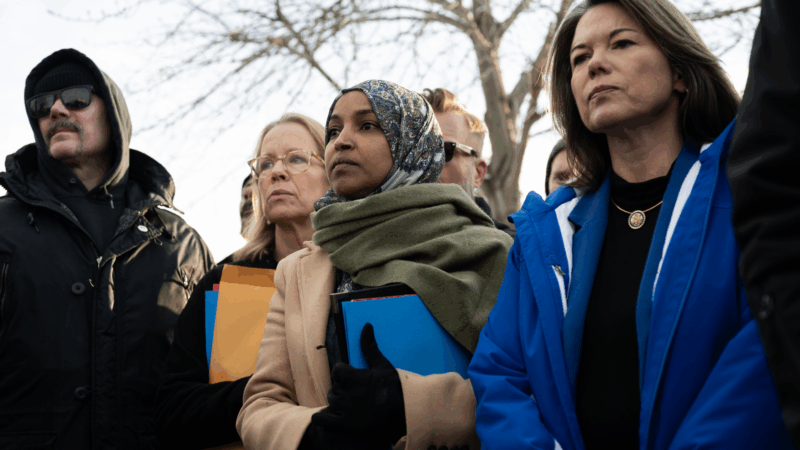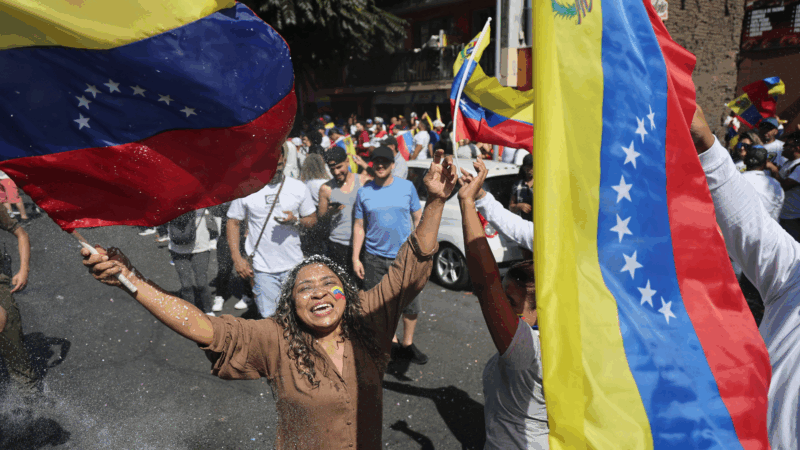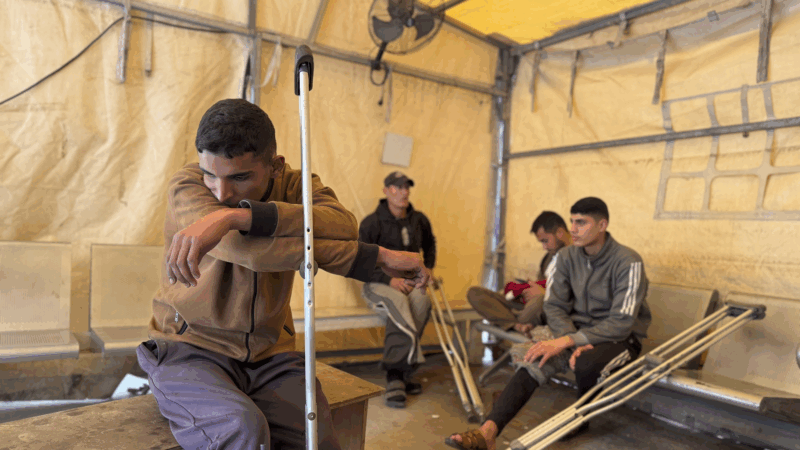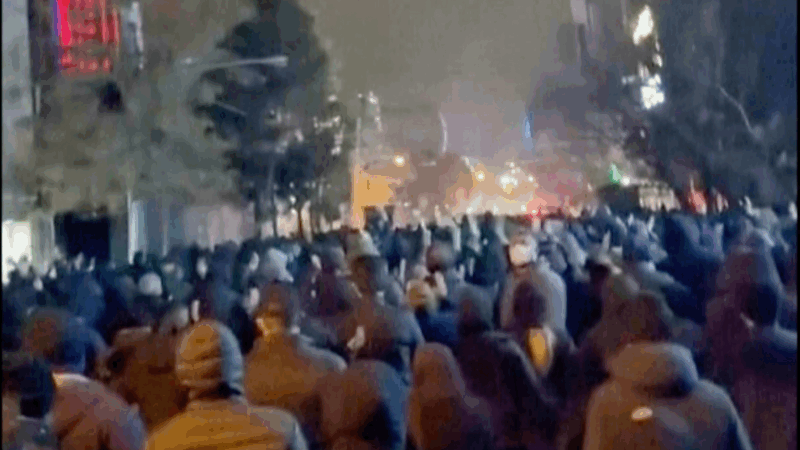What to know as Gaza ceasefire talks begin in Egypt
Two years after the Hamas-led attacks on Israel on Oct. 7, 2023, the subsequent war they ignited may finally be approaching a turning point.
On Friday, Hamas said it had partially agreed to a 20-point plan introduced by the White House to end the fighting in Gaza. Israel said it accepted the plan’s first phase — agreeing in principle to a limited troop pullback tied to a hostage handover — but framed that acceptance as conditional, saying Hamas must be disarmed as part of any final deal.
On Sunday, President Trump told CNN that Hamas would face “complete obliteration” if it refuses to relinquish control of Gaza, while saying that Israeli Prime Minister Benjamin Netanyahu is on board with ending Israel’s bombing of the territory.
Also on Sunday, Secretary of State Marco Rubio said on CBS’ Face the Nation that Hamas has agreed to the framework of a hostage deal, emphasizing that talks should focus on “the logistics behind the release of these hostages.”
Delegations from Israel, Hamas and the United States — joined by mediators from Egypt and Qatar — will meet Monday in Sharm El Sheikh, an Egyptian Red Sea resort town, as global protests over the Gaza war continue and diplomatic pressure mounts for a ceasefire. Jared Kushner and U.S. special envoy Steve Witkoff will be joining the U.S. team.
What’s on the table for Monday’s talks in Egypt?
The White House’s 20-point proposal would immediately end the war in Gaza once both sides accept. Under the plan, Israeli forces would pull back to a designated “initial line” inside Gaza so hostages can be handed over, and military operations would be suspended while transfers take place.
All 48 hostages, living and deceased — only 20 are believed to be alive — would be returned within 72 hours of both sides publicly accepting the agreement. In exchange, Israel would free roughly 250 Palestinian prisoners held in Israel who are serving life sentences, as well as 1,700 Gaza residents who have been detained since the war began.
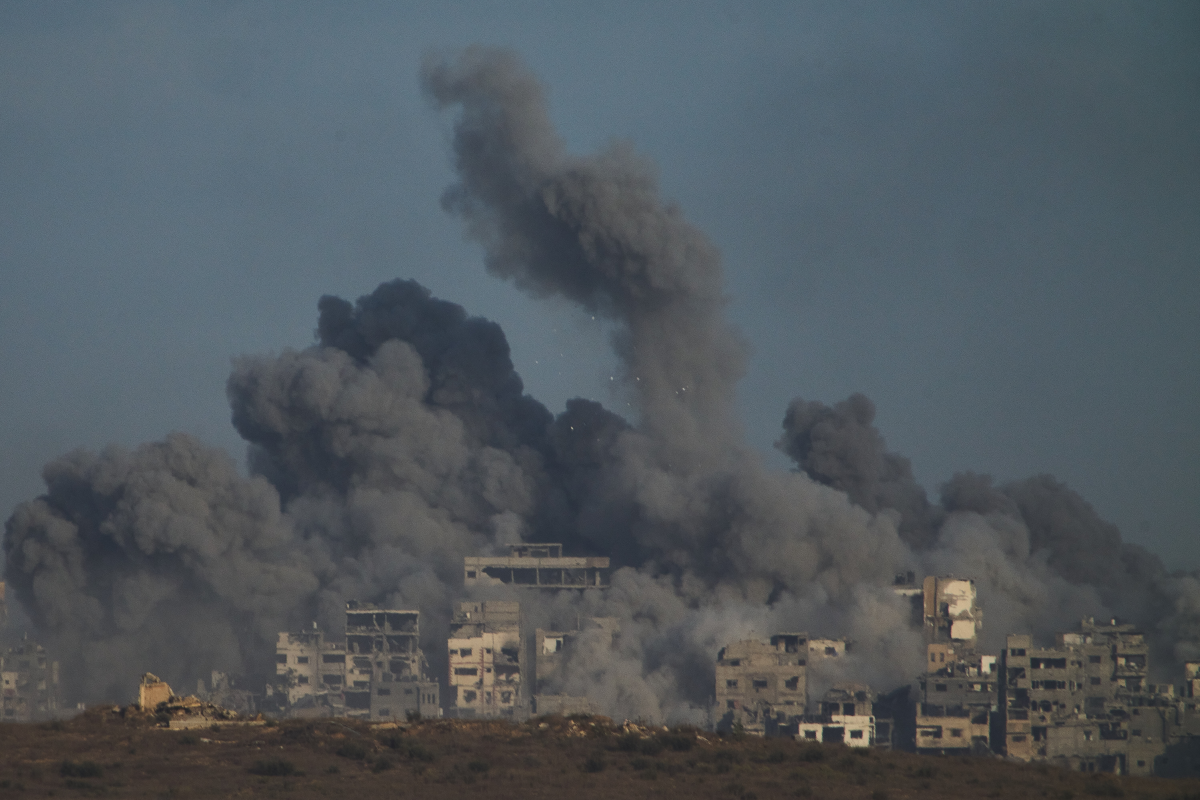
Israeli officials say they are prepared to carry out the pullback and the prisoner releases, but they say any release must be verifiable, security guarantees must be in place, and Hamas must be effectively disarmed.
Hamas officials say they accept the broad framework and are willing to enter talks, but their acceptance is partial and contingent on changes. Negotiators close to Hamas say the group is pressing for adjustments to the proposed withdrawal line and wants explicit guarantees that Israel will not resume large-scale operations after hostages are returned.
Hamas and mediators also say the plan’s 72-hour return window is likely unrealistic. Some hostage remains are believed buried under heavy rubble, others may be held by different groups, and damage to infrastructure complicates rapid recovery and verification — so they are pushing for a longer, staged timetable. A person briefed by Egyptian officials told NPR, on condition of anonymity to divulge details, that they expected the timetable for hostage releases to be extended to up to seven days.

The plan leaves several big questions unanswered. Hamas insists Israel leave Gaza fully — the proposal, however, envisions an Israeli “security perimeter presence” in some areas until Gaza is demilitarized and monitored by an international force.
Any full Israeli withdrawal would be contingent upon Hamas giving up its weapons and an international security force being in place to oversee the process. The document also says that if Gaza’s reconstruction goes well and the Palestinian Authority (which oversees parts of the Israeli-occupied West Bank) carries out agreed reforms, there could eventually be a pathway toward Palestinian self-rule or statehood. But that outcome would be conditional, and the plan sets no firm timetable.
People in Israel and Gaza remain cautiously hopeful
Many Israelis now see this as the closest they’ve come to ending the war.
A recent Maariv opinon poll found that more than half of Israelis support the American ceasefire proposal.
At a weekly Saturday night gathering for the hostages in Tel Aviv, many people sounded cautiously hopeful — if not frustrated with the political leadership at home.
Zvia Agur, who has attended weekly protests since the war began, told NPR she no longer sees Netanyahu as her leader.
“He is our enemy,” she said. “When we see that he acts against our true and just ambitions, we have to fight him.”
Families of hostages have been among the most visible voices pushing for a deal. Einav Zangauker, whose son Matan remains captive, told reporters she felt closer than ever on Sunday to being reunited with her son.

“We are one step away from a comprehensive agreement,” Zangauker said, according to a statement from the group Hostages and Missing Families Forum. “We will not let this opportunity slip away.”
Israeli airstrikes and drone fire continued through the weekend in Gaza, and scores of Palestinians were killed, according to Gaza’s health ministry.
Gaza’s health ministry says more than 67,000 Palestinians have been killed since the war began.
Inside the territory, many are cautiously optimistic. But there are doubts. A’id Fuad al-Minawi, 52, told NPR that the bombing intensified on Friday after Hamas responded to the ceasefire proposal.
“It’s a trap,” he said. “Israel will impose impossible new conditions after they get the hostages — and the war will begin again.”
Hamas officials say their central demand is a guarantee that Israel will not resume large-scale operations once hostages are returned.
If the talks in Egypt succeed, the first hostages could be freed within days — and for the first time in nearly two years, both Palestinians and Israelis might glimpse an end to the war.
NPR’s Daniel Estrin and Emily Feng contributed reporting from Tel Aviv. NPR’s Anas Baba contributed reporting from Gaza.
DHS restricts congressional visits to ICE facilities in Minneapolis with new policy
A memo from Homeland Security Secretary Kristi Noem, obtained by NPR, instructs her staff that visits should be requested at least seven days in advance.
Historic upset in English soccer’s FA Cup as Macclesfield beat holders Crystal Palace
The result marks the first time in 117 years that a side from outside the major national leagues has eliminated the reigning FA Cup holders.
Venezuela’s exiles in Chile caught between hope and uncertainty
Initial joy among Venezuela's diaspora in Chile has given way to caution, as questions grow over what Maduro's capture means for the country — and for those who fled it.
Sunday Puzzle: Pet theory
NPR's Sacha Pfeiffer plays the puzzle with KAMW listener Daniel Abramson of Albuquerque, N.M, and Weekend Edition Puzzlemaster Will Shortz.
Inside a Gaza medical clinic at risk of shutting down after an Israeli ban
A recent Israeli decision to bar Doctors Without Borders and other aid groups means international staff and aid can no longer enter Gaza or the West Bank. Local staff must rely on dwindling supplies and no international expertise.
Iran warns US troops and Israel will be targets if America strikes over protests as death toll rises
Iran's parliament speaker warned the U.S. military and Israel would be "legitimate targets" if America strikes the Islamic Republic, as threatened by President Donald Trump.

